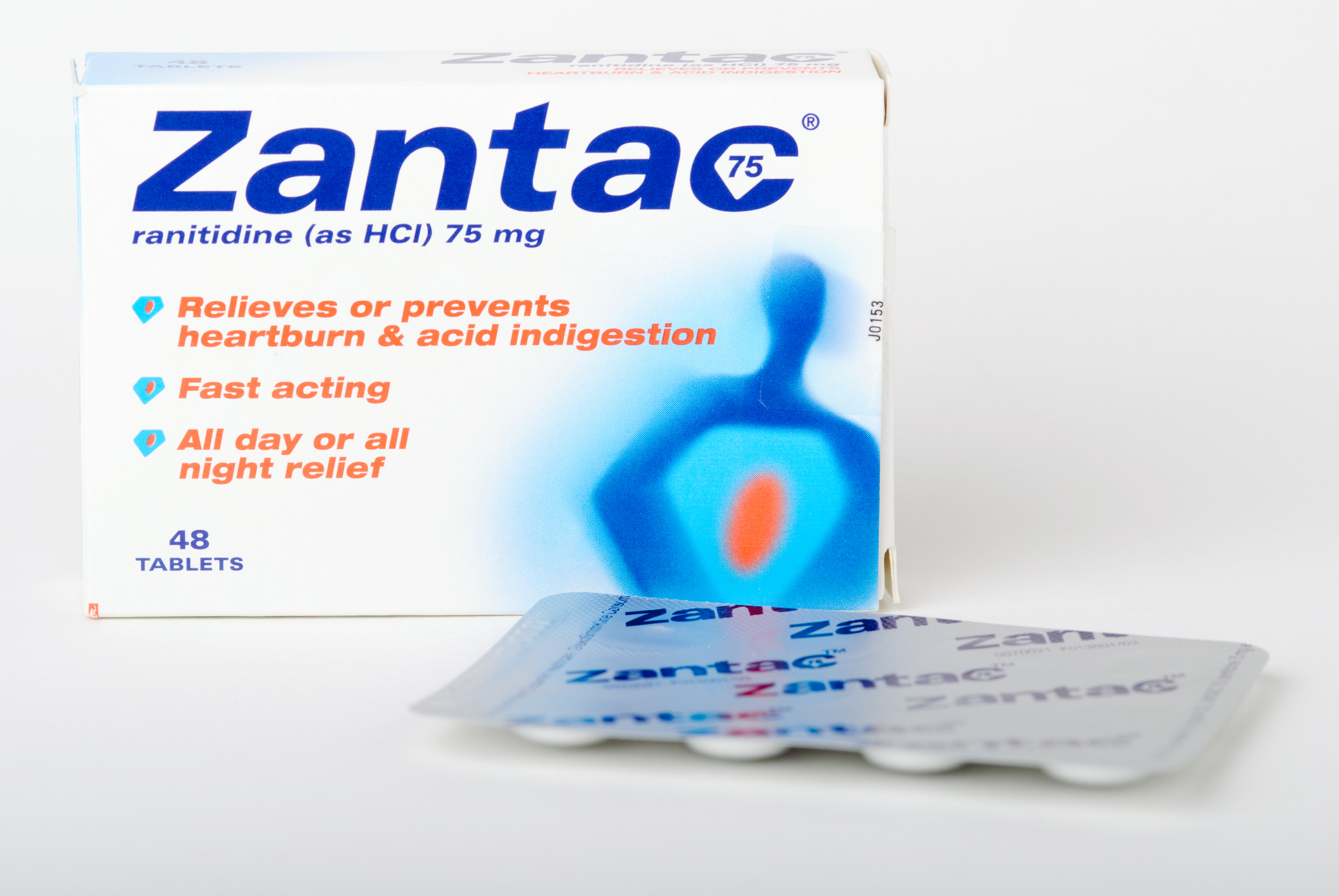The acid reflux drug Zantac was recently recalled over concerns that it might cause cancer, to the shock of millions of Americans who take the medication on a regular basis.
How did this happen? Zantac’s generic ingredient ranitidine was discovered in 1976. Since 1981, it’s been used by patients to treat acid reflux and related conditions. By 2017, ranitidine ranked in the top 50 most prescribed medicines in the United States, with over 16 million prescriptions filled. Ranitidine is also available over-the-counter and holds a spot on the World Health Organization’s list of essential medications.
With a pedigree like that, you’d assume your medication would be safe to take. But in 2019 the FDA discovered cancer-causing impurities in ranitidine products. By April 2020, most ranitidine medications including Zantac have been recalled from the U.S. market.
A recall may protect patients in the future, but if you’ve been taking ranitidine for a while, what does that mean for you? Like others in your position, you’re probably alarmed to find out a drug you’ve been taking could have been hurting you in the long run.
Harlan Law is dedicated to fighting for patients who have been hurt by dangerous drugs. We’ve been following the recall closely since it’s been announced. Our law firm is currently taking cases of patients who have been injured by ranitidine across the United States.
Your heartburn medication should not come with the worry of cancer. If you’ve been diagnosed with cancer after taking Zantac or generic ranitidine, call our lawyers now at (619) 870-0802 for a free consultation of your case.
Zantac and Ranitidine Cancer Risk
Zantac is an antacid that works by blocking histamine-2 and decreasing the amount of acid produced in the stomach. It belongs to a class of drugs known as H2-receptor antagonists or H-2 blockers. Millions of people around the world take Zantac and generic ranitidine to manage conditions caused by stomach acid reaching the esophagus.
You may have taken ranitidine for:
- Heartburn, acid reflux, and sour stomach
- Gastroesophageal reflux disease (GERD) or Barrett’s Esophagus
- Gastric and duodenal ulcers
- Zollinger-Ellison syndrome or peptic ulcer disease
- Other related conditions
Because ranitidine has been used as a maintenance treatment, some patients have taken it for years, putting themselves at increased risk.
The Problem: N-Nitrosodimethylamine (NDMA)
In 2019, the U.S. Food and Drug Administration (FDA) discovered that medications with ranitidine contained low levels of NDMA or N-Nitrosodimethylamine. NDMA is a toxic chemical that is known to “probably” cause cancer in humans.
The FDA considers less than 100 nanograms of NDMA per day to be a “safe” amount. Over the years, other common medications have also been recalled because of NDMA impurities. A similar recall happened with a category of drugs called Angiotensin II Receptor Blockers, used to treat blood pressure and other heart conditions.
When testing batches of Zantac, the FDA found samples with “excessively high” and “unacceptable” levels of the carcinogen NDMA. One study found a 150 mg pill of Zantac to have over 2.5 million nanograms of NDMA. In some cases, the NDMA in ranitidine was found to increase over time, especially when stored in higher than room temperature. NDMA levels may also increase when the medication interacts with nitrates in the digestive tract.
Some patients take Zantac for weeks, months, or even years. That’s a lot of exposure, especially as some people believe no level of NDMA is truly “safe.”
Shortly after the FDA’s announcement, many ranitidine products including the popular Zantac were voluntarily recalled and removed from store shelves across the country. On April 1, 2020, the FDA requested that all drugmakers remove their ranitidine products from the market.
Manufacturers who have recalled ranitidine products in the U.S. include:
- Apotex Corp.
- Appco Pharma LLC
- Aurobindo Pharma USA, Inc.
- Amneal Pharmaceuticals and Precision Dose, Inc.
- American Health Packaging
- Glenmark Pharmaceuticals, Inc.
- Golden State Medical Supply, Inc. and Novitium Pharma LLC
- Denton Pharma, Inc. and Northwind Pharmaceuticals
- Sandoz (Novartis)
- Sanofi-Aventis, maker of Zantac
Products that have been recalled include:
- Ranitidine Hydrochloride (HCl) Capsules 150 mg, 300 mg
- Ranitidine Oral Solution, 150 mg/10 mL
- Ranitidine Syrup 15 mg/mL
- Ranitidine Syrup Oral Solution USP 150 mg/10 mL Liquid Unit Dose Cups
- Ranitidine Tablets, 75 mg, 150 mg, 300 mg
- Wal-Zan 75 mg, 150 mg
- Zantac OTC (over-the-counter) 75 mg, 150 mg, 150 mg Cool Mint
- Any other acid reducer or acid control medications with ranitidine
If you’re still taking ranitidine right now, you should talk to your doctor immediately. Your healthcare provider may have other options for treating your condition.
Side Effects of Ranitidine Contaminated with NDMA
The NDMA in ranitidine and Zantac could increase your risk of:
- Stomach cancer
- Bladder or uterine cancer
- Liver damage or cancer
- Esophageal, throat, or nasal cancer
- Small intestine cancer
- Colorectal cancer
- Prostate cancer
- Lung cancer
- Thyroid cancer
- Pancreatic cancers
- Ovarian or testicular cancer
- Multiple myeloma or leukemia
- Non-Hodgkin’s Lymphoma cancers
A cancer diagnosis can be devastating. Cancer treatment may be costly and painful. If your cancer was caused by a defective drug, the maker of that drug should be held responsible. You shouldn’t have to bear the burden all on your own.
So what can you do if you’ve been hurt by Zantac?
Ranitidine and Zantac Cancer Lawsuits
A class-action lawsuit has been filed against Sanofi-Aventis, the maker of Zantac, for failing to warn patients about the risks of cancer “despite undeniable scientific evidence.”
Zantac and ranitidine lawsuits claim that drugmakers:
- Knew or should have known about the drug’s risks of cancer
- Had the responsibility of telling patients about the risks
- Actively concealed Zantac’s cancer link from the public
- Enjoyed profits even while people’s lives were put at risk
The class-action lawsuit against Zantac is filed on behalf of all patients who may have been exposed to unacceptable levels of NDMA while taking the drug. Anyone who bought Zantac can join the class-action even if they can’t prove that they’ve been harmed.
If you took Zantac and you developed cancer as a result, the class-action lawsuit won’t necessarily cover claims related to your injuries. Instead, you may be able to file a personal injury lawsuit against the makers of the drug.
A personal injury lawsuit represents your personal interests and allows you to get the maximum possible compensation for the harm that you’ve suffered.
With a personal injury lawsuit, you can get damages for:
- Medical bills and costs of treatment
- Lost wages or opportunities
- Loss of past or future earnings
- Temporary or permanent disability
- Physical and mental pain and suffering
If you got cancer after taking Zantac or ranitidine, you should speak to an experienced personal injury lawyer as soon as possible about your options.
Contact a Zantac Cancer Lawsuit Attorney Today
Harlan Law is currently investigating reports of cancer caused by ranitidine and Zantac heartburn medications. Our experienced lawyers have years of experience fighting for patients who have suffered harm as a result of defective drugs. Our firm is passionate about holding companies accountable for the damage that they cause.
Have you received a cancer diagnosis after taking ranitidine or Zantac? Call Jordon Harlan at (619) 870-0802 for a free consultation of your case today. Our law firm is here to help you get the treatment you need to recover.




